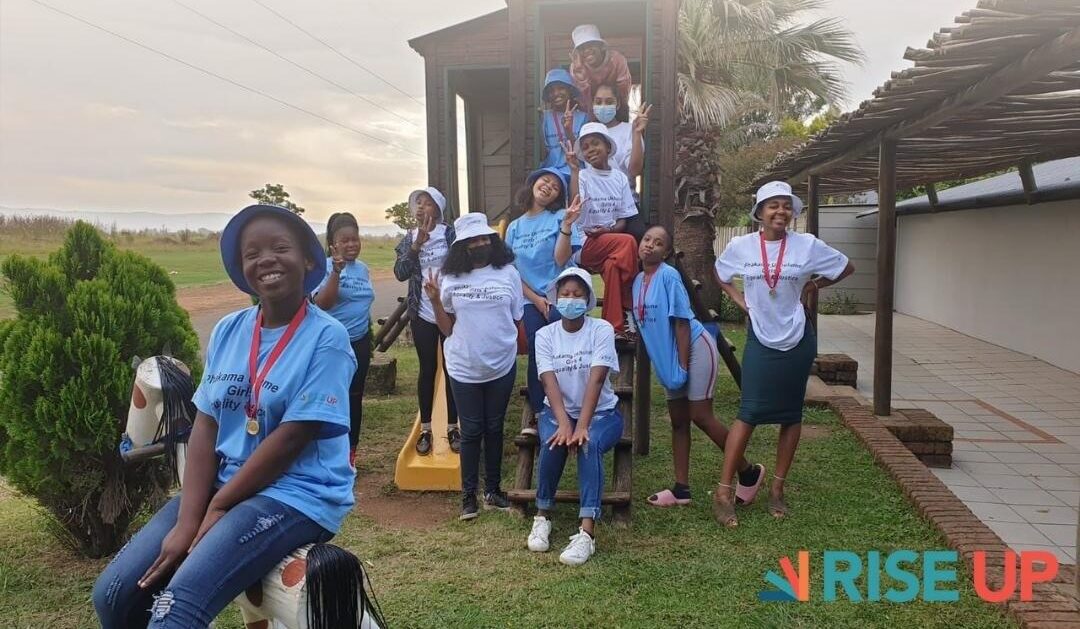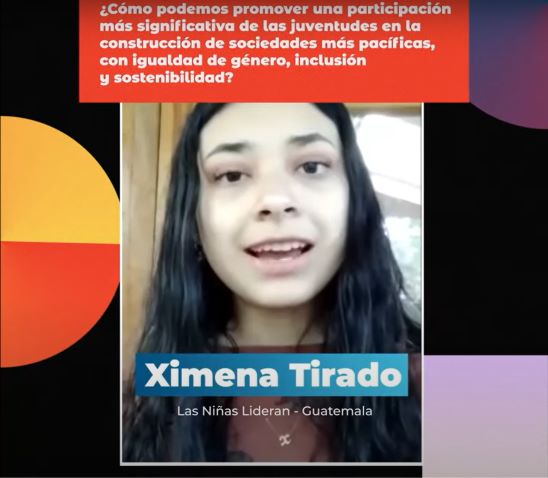October 11, 2022
Today, we commemorate the 10th anniversary of the International Day of the Girl. Since Rise Up was founded in 2009, girls have been at the center of our work to advance gender equity globally.
Over the last year, Rise Up has supported hundreds of girls, youth, and adolescents to strengthen their leadership skills and amplify their voices in Africa, Latin America, South Asia, and the United States. Collectively, Rise Up girl leaders have positively impacted more than 700,000 people in 2022. In close partnership with in-country organizations, girls and youth learn how to identify issues that impact them, set goals, develop strategies, meet with decision makers, and share their own stories through our Girls’ Voices Curriculum.
Girls also remain principal to Rise Up Leaders’ work as they improve equity in education, health, and economic opportunity in countries around the world.

While there has been notable progress and increased attention on the issues that matter to girls in the last decade among governments, policymakers, and society at-large, significant obstacles still exist. “Investments in girls’ rights remain limited and girls continue to confront a myriad of challenges to fulfilling their potential; made worse by concurrent crises of climate change, COVID-19, and humanitarian conflict,” according to the United Nations.
Rise Up will always be committed to girl-led and girl-centered advocacy campaigns to effectively engage decision makers in advancing girls’ rights. Read on to learn more about some of the inspiring ways Rise Up girl leaders have forged a path forward in their own communities, countries, and the global stage this past year.
HONDURAS
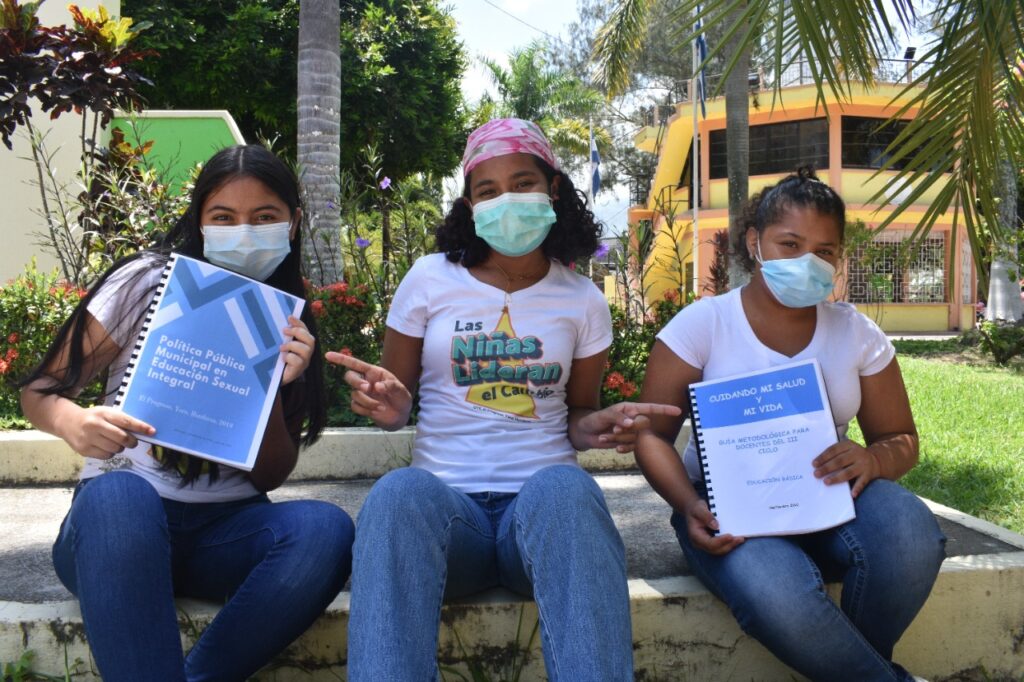
At the beginning of this year, Rise Up girl leaders in Honduras celebrated their remarkable achievements in advancing sexual and reproductive health care, access to education, and prevention of sexual harassment and violence in their communities, impacting more than 223,000 girls and adolescents.
With support from Rise Up, the girl leaders reached decision makers to enact political changes that benefit Honduran girls and adolescents, including:
- Making comprehensive sexual education a reality through a public policy in the municipality of El Progreso, Yoro and an education program in sexual reproductive health in Jutiapa Atlántida.
- In the municipality of La Ceiba, street sexual harassment will be prohibited, prevented, and punished through a new ordinance, and psychological, physical, and sexual violence in schools will be addressed through a new public policy of prevention.
- The lack of access to school education will improve with the approval of scholarship programs in the budgets of the municipalities of Olanchito and La Ceiba.
“We youth and adolescents have great capacity to strengthen the social fabric and create a sustainable present and future,” Iliany, a Rise Up girl leader, said. “The impact of the ongoing pandemic is transforming us and there is still no clarity about what our lives will be like in a world after COVID-19. The only certain thing is that nothing will be the same anymore.”
GUATEMALA
Rise Up girl leaders Ximena, Cinndy, and Anyeli from Guatemala participated in UN Women’s Intergenerational Peacebuilding Month in August of this year, sharing their visions on the importance of youth participation in creating more peaceful societies, sustainable recovery from crisis, and building intergenerational solidarity.
Click the images below to hear directly from Anyeli and Ximena.
During this month-long event, UN Women amplifies the Latin American and Caribbean region and highlights the fundamental role of activists who lead peacebuilding and social cohesion, bringing together the voices of young women and historical activists.
SOUTH AFRICA
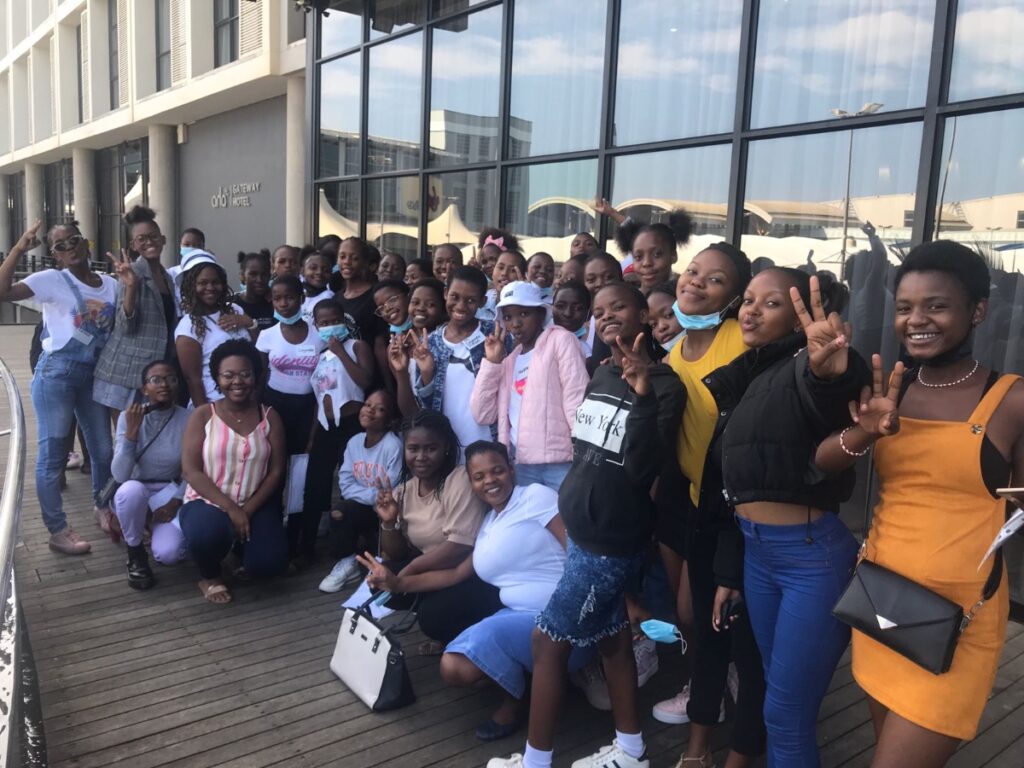
“Phakama ukhulume,” a Zulu word which means “rise and speak,” has become the defining phrase for the latest cohort of Rise Up girl leaders in KwaZulu Natal Province in South Africa – encouraging them to speak out in their communities. Rise Up is working in partnership with local partner SAfAIDS, an organization focused on expanding access to sexual and reproductive health care for adolescents and young people in Southern Africa, on this program.
The 60 girl leaders are advocating for youth-friendly health care services, ending period poverty by increasing access to menstrual products and sanitation facilities, creating awareness on substance abuse, and initiating actions to prevent teenage pregnancy.
CALIFORNIA
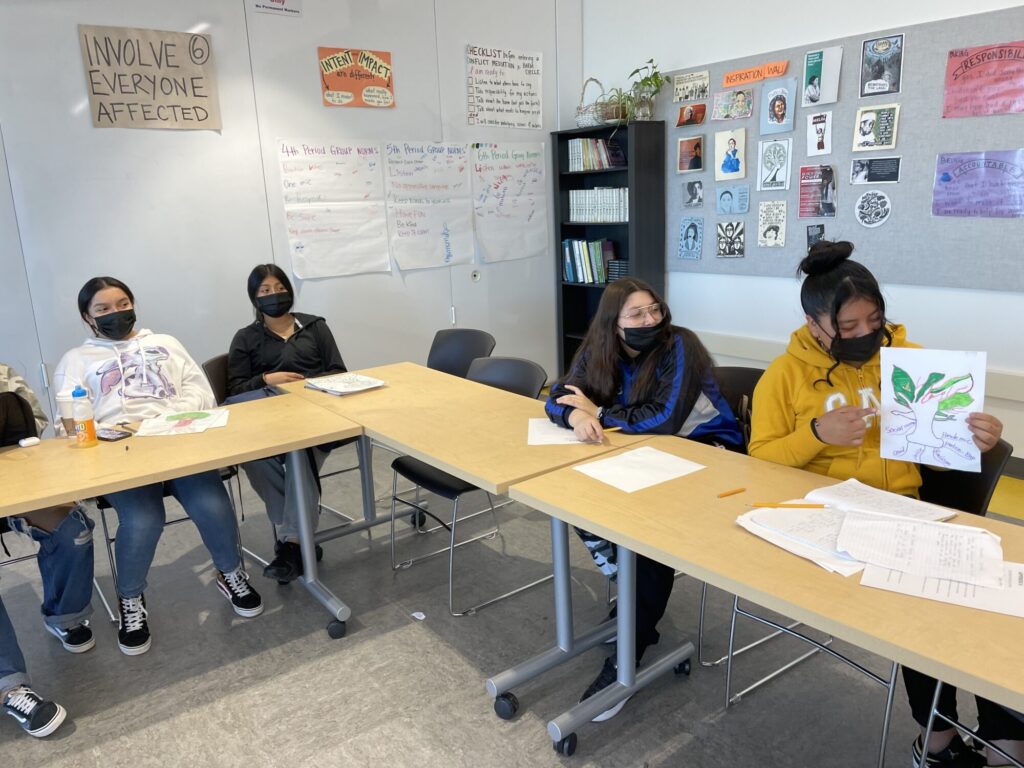
A group of 39 girls and gender-expansive youth in Oakland, California are growing their leadership skills and learning new ways to speak out for their rights to stay healthy, finish school, and live a life free from violence through a partnership between Rise Up and The Unity Council’s Latinx Mentoring & Achievement program.
At a session this summer, the girl leaders created a “problem tree” to analyze the root causes and effects of problems in their everyday lives. The leaders plan to advocate for menstrual products in school, resources and programs for low-income students, addressing school closures, and launching a campaign against sexual harassment.
Girls are ready for the next decade of progress, and Rise Up will continue to recognize their agency, work with them to develop their leadership, and support them in fulfilling their potential.
“I have always said that I want to be the voice for the girls who are not here and who maybe are but are afraid to raise their voices,” said Kemberly, a Rise Up girl leader in Honduras. “That continues to be my goal, to be able to give a message that they have rights and know about their rights.”

